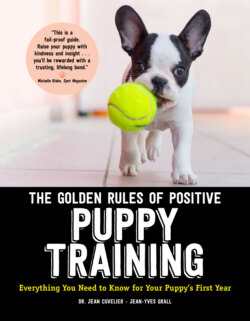Читать книгу The Golden Rules of Positive Puppy Training - Jean Cuvelier - Страница 26
На сайте Литреса книга снята с продажи.
VARYING ENVIRONMENTAL FACTORS Maternal Relationship
ОглавлениеIn his mother’s womb, a puppy feels his mother’s stress through hormones (e.g., cortisol, adrenaline). These hormones affect the brain’s development and maturation and increase the puppy’s sensitivity to subsequent environmental stimuli.
After the mother gives birth, an invisible bond is created between her and the puppies. The mother becomes a secure base from which the puppies can go out and explore the world. A calm, well-socialized mother will encourage her puppies to explore and give them self-confidence. Conversely, an anxious, poorly socialized mother will limit her puppies’ exploration and increase their fear of the outside world.
An adult dog’s emotional Stability is largely influenced by the maternal environment in which the puppy lived.
The saying “like mother, like puppy” holds true; therefore, it is important to meet the mother before adopting a puppy. A well-socialized mother, who is cared for properly by her breeder, has every chance of having well-adjusted puppies.
THE VET’S ADVICE
It is through contact with their mother that puppies learn to live in society with their fellow dogs, other animals, and humans. The recommended age for letting puppies go to their new homes is eight weeks, and you can even request that your puppy stay a few more weeks with his mother and siblings to further his initial training, especially if the environment in which they live is similar to your puppy’s future environment.
